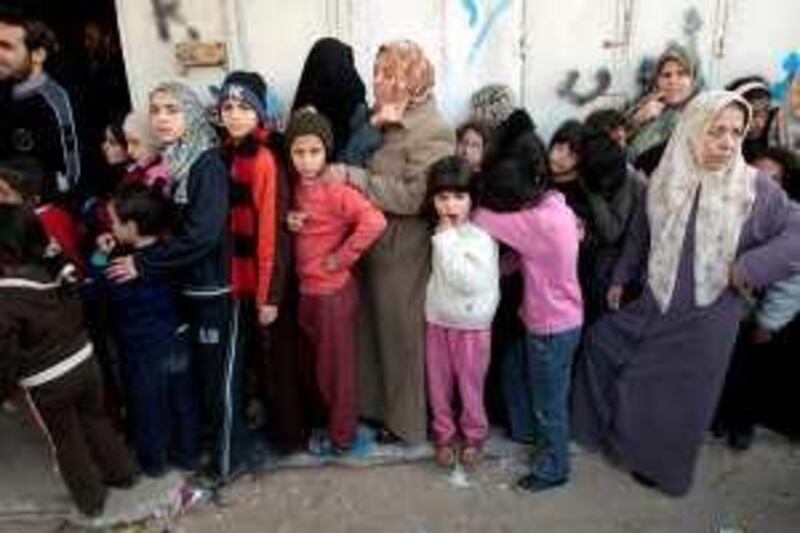There is no water and no electricity. We are lucky because we have a generator. We bought extra fuel on the first day [of the offensive] so we can still pump water from our own well and we have about an hour of electricity in the evening. We are five here in our apartment in the Tal al-Hawa district of Gaza City, my wife and three children, three, four and five. My children are too young to understand, so they are very bored, they want to go out and play. But the fighting is close, we can't go out. We stay only in the building.
I don't know what is going to happen. I am waiting to see what will happen in negotiations between Hamas and Egypt. But the problem here is for the people. There is no money. In the building, we help each other, so we eat together and if someone does not have something, we try to share. Baha Abu Shannab, 37, is a mathematics lecturer at al-Quds University in Gaza City.
Everyone wants to know what we are going through. There is bombing day and night, there is no food, nothing to drink. We spend the whole day carrying old plastic bottles around to find water. There is nothing to buy in the market. Diapers are a dream, milk is a dream. The only thing we go out for is water and bread. As a journalist, I should be very busy and I have been asked to write so many things. But there is little electricity, so I can't really work. I can hardly charge my phones, how could I write? I don't allow my children [Mr Kahlout has five children between two and eight; another is due next month] to go anywhere. No way. They are very frustrated; they want to play, they want to eat sweets, they want to watch cartoons. [Mr Kahlout lives in an apartment in central Gaza City. On Sunday, his uncle and aunt and their four children, seven to 17, moved in from their own apartment in north Jabaliya, where heavy fighting was reported late on Sunday and on Monday.] Safwat Kahlout, 35, is a journalist.
I don't know what to say. We are praying all the time. It's a very miserable situation. We were forced to leave our house and we are now staying with my nephew, Safwat. It's very difficult to communicate with others. My oldest son and his wife are staying with my brother here in the city as well, but the phones don't work and it's hard to hear from them. My children are trying to cope. The older ones find it hard to sleep at night because of the bombing and there is nothing to eat. There is nothing in the market. Everything is closed. There are no schools, no universities. We were supposed to have midterm exams now but everything has stopped.
The building where I work was destroyed in one bombardment [Israel bombed the ministry of education in an overnight raid on Dec 31]. We don't know what will happen now; we can't see what the future will bring. Israeli leaders say they will destroy Hamas, but they are not destroying Hamas. They are destroying the people and the land. Yusra Kahlout, 47, is an administrative assistant at the ministry of education.
Gaza has been split into three parts and people can't move from these parts. People are very scared. No one is going out into the streets, you don't know when they are going to strike or where. The shops are all closed. Life has totally stopped. The hotel [in the downtown area of Gaza City on the beach] is not empty. There are two rooms occupied from before this started. I am functioning more as a security guard, not really working. We are just afraid that someone will try to come in. I don't go home. I am not married. My family lives in the centre, where the situation is still calm. They are OK, we talk on the phone.
There are only two other people working here with me; room service and a waiter. Normally we are 30. The other two also stay at the hotel and are also not married. We heard that one of the hotels nearby was bombed, but here nothing has happened. But I don't feel safe, nobody feels safe. I don't know what is going to happen. I really don't know. Abdullah Badwan, 23, is a hotel receptionist okarmi@thenational.ae





